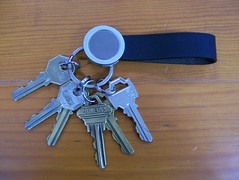Read a lot of it before you write
When you read a lot of fiction in the flash fiction form, you naturally absorb the form and write in it. Reading flash fiction is the best way to get a feel for the form. Read between 25 and 50 flash fiction stories, and select the five best ones and read them three more times. This helps you get you into the flash fiction writing mindset.
Read the writers guidelines
Reading the writer’s guidelines can prevent you from making a mistake, such as sending your story as an attachment to an email to a publication that deletes eamil with attachments unread, because of virus fears. Or submitting a story about vampires to a literary magazine that would never even consider publishing such a piece.

Writer’s Guidelines tells you the reader exactly what the editor is looking for. They are your blueprint for publication.
Begin in the middle of the action
In flash fiction, you don’t have time for extensive background information, setting description or background about your character’s dysfunctional family. You need to start in the middle of the story, preferably in the middle of a tense, action-packed situation such as a lovers’ quarrel, a fist-fight at a funeral, a fatal auto accident, or a day when a character loses his job.
Keep a tight focus
Figure out what the important message of your story is early on and make sure that every word supports that message. In flash fiction, you don’t have the luxury of words to have elaborate sub-plots (or sub plots at all for that matter), to flesh out more than a character or two, or waste a word of description.
Show don’t tell
Don’t tell me that the man is ugly, show me how babies cry when he walks past their strollers in the park, how parents shush small children who loudly ask why he looks like a troll, and how adults look away trying not to stare out of pity. Use specific detail and action to show a specific character trait.
Flash fiction must be economical, using every sentence to show the character’s true nature, revealing the secret that the character is struggling to hide.
Replace adjectives and adverbs
Limit the use of adjectives by selecting specific, strong nouns. Don’t write “big black dog” when you can write “labrador retriever.” The second phrase is more visual and specific. Replace adverbs by using vivid action-packed verbs. For example, don’t write “ran quickly” when “sprinted” would be a better choice.
Don’t waste words
Don’t use empty words such as really, very, extremely, much, more, less or any other word that tries to increase the intensity of a specific word. Don’t write “He was very angry,” when “He was angry,” or “He was enraged,” would fit better.
Have an ending that satisfies the reader
Bad endings prevent more flash fiction from being published than any other specific flaw in a story. Flash fiction stories need to be concise little packages that make sense and provide some closure for the piece.